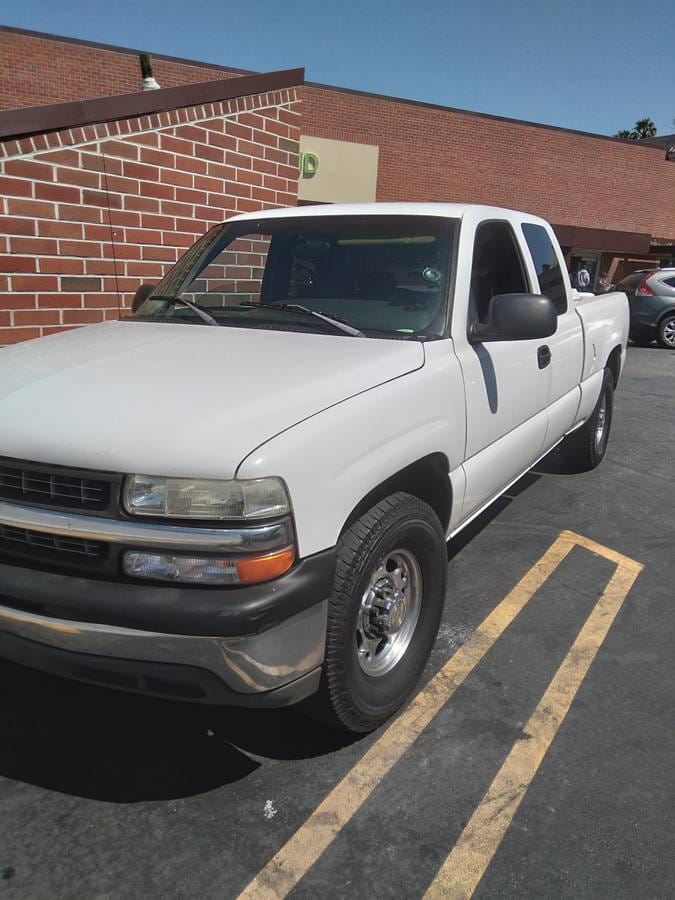Swiss Car Brands: Precision, Innovation, and Niche Excellence
Swiss Car Brands: Precision, Innovation, and Niche Excellence cars.truckstrend.com
When one thinks of Switzerland, images of majestic Alps, precision watches, delectable chocolates, and a robust banking sector often come to mind. The automotive industry, however, is rarely at the forefront of this perception. Unlike its German, French, or Italian neighbours, Switzerland has never been a hub for mass-produced vehicles. Yet, to overlook Swiss contributions to the automotive world would be to miss a fascinating narrative of unparalleled precision, bespoke craftsmanship, visionary innovation, and a unique focus on niche excellence. Swiss car brands, though few and far between in the traditional sense, represent a distinctive approach to mobility, prioritizing quality, engineering prowess, and often, audacious design over volume.
This article delves into the unique landscape of Swiss car brands, exploring their historical roots, contemporary innovations, and the reasons behind their distinctive position in the global automotive industry. We will uncover the hidden gems and the forward-thinking concepts that embody the "Swiss Made" ethos on wheels.
Swiss Car Brands: Precision, Innovation, and Niche Excellence
The Historical Landscape: Pioneers of Swiss Automotive Engineering
While not a prolific car-producing nation, Switzerland has a rich, albeit niche, automotive history. Early ventures laid the groundwork for precision engineering, even if they didn’t lead to global empires.
- Pic-Pic (1906-1924): Founded in Geneva, Pic-Pic (Picornand and Pictet) produced high-quality, luxury automobiles that were well-regarded in their time. Known for their powerful engines and elegant designs, they showcased early Swiss capability in automotive manufacturing.
- Martini (1897-1934): Another early Swiss manufacturer, Martini initially produced bicycles and motorcycles before moving into automobiles. Their cars were known for their robustness and reliability, often participating in early motor races.
- Saurer and Berna (Early 20th Century – Mid-20th Century): While not passenger car manufacturers in the luxury sense, Saurer and Berna were significant Swiss companies renowned for their heavy commercial vehicles, trucks, and buses. Their contributions highlighted Switzerland’s industrial strength and engineering excellence in durable, high-performance machinery. These companies built a reputation for reliability and innovative diesel engines, serving military and civilian needs for decades.
However, the most prominent name in Swiss passenger car history, particularly for luxury and sports cars, is undoubtedly Monteverdi.

- Monteverdi (1967-1984): Founded by Peter Monteverdi, a former racing driver and car dealer, Monteverdi aimed to build high-performance luxury cars that combined Italian flair with Swiss precision. Based in Binningen, Monteverdi produced a series of elegant grand tourers and sports cars, often powered by large American V8 engines. Models like the High Speed 375, Hai 450 SS (a stunning mid-engined supercar concept), and the Safari and Sahara SUVs showcased a blend of luxury, performance, and exclusivity. Monteverdi cars were hand-built, expensive, and catered to a discerning clientele, embodying the bespoke nature of Swiss automotive aspirations. Production numbers were always low, making these vehicles highly sought-after collector’s items today.
The Age of Innovation and Bespoke Creations: Sbarro and Rinspeed
In more contemporary times, Switzerland’s automotive identity has been largely shaped by visionary individuals and design houses rather than traditional factories. This era is characterized by radical concept cars, bespoke engineering, and a relentless pursuit of innovation.

Franco Sbarro: The Master of Automotive Artistry
Franco Sbarro, an Italian-born Swiss designer, is a legendary figure in the world of automotive prototyping and concept cars. His company, Sbarro, and his design school, L’Ecole Espéra Sbarro, located in Pontarlier (near the Swiss border), are globally recognized for pushing the boundaries of automotive design and engineering.
- Unconventional Designs: Sbarro is synonymous with outrageous, unique, and often functional concept cars. From the revolutionary "Orbital Wheel" vehicles with no central axle to cars that transform or feature unconventional seating arrangements, Sbarro’s creations are pure automotive artistry.
- Educational Impact: His school trains future automotive designers and engineers, giving them hands-on experience in building working prototypes. This focus on practical application and innovative thinking is a hallmark of the Sbarro approach.
- Bespoke Solutions: Sbarro also produces limited-edition models and custom-built cars for wealthy clients, reinforcing the Swiss tradition of bespoke craftsmanship.
![]()
Rinspeed: Visionary Concepts and Future Mobility
Rinspeed, founded by Frank M. Rinderknecht, is another prominent Swiss name, though not a car manufacturer in the conventional sense. Rinspeed is a "think tank" and a concept car creator known for showcasing futuristic technologies and radical design philosophies at international motor shows, particularly the Geneva Motor Show.
- Technological Pioneers: Rinspeed’s concepts often integrate cutting-edge technologies, such as advanced autonomous driving systems (e.g., "Budii"), aquatic capabilities (e.g., "sQuba" submersible car), or unique human-machine interfaces. They are less about mass production and more about exploring the possibilities of future mobility.
- Design as a Statement: Each Rinspeed concept is a bold statement, challenging conventional notions of vehicle design and utility. They are platforms for demonstrating innovative materials, propulsion systems, and user experiences.
- Collaboration: Rinspeed frequently collaborates with leading technology companies and suppliers, acting as a showcase for their innovations within a compelling automotive context.
Modern Swiss Mobility: Electric and Niche Solutions
In the 21st century, Swiss ingenuity in the automotive sector has largely pivoted towards sustainable and highly specialized mobility solutions, particularly in the electric vehicle (EV) domain.
- Kyburz (eRod): Kyburz Switzerland AG is known for its electric utility vehicles, particularly the DXP model used by the Swiss Post. However, they also produce the Kyburz eRod, an electric roadster designed for pure driving pleasure. It’s a lightweight, open-wheel electric vehicle that exemplifies Swiss precision engineering applied to an exciting, environmentally friendly package. It’s a niche product for enthusiasts seeking a unique electric driving experience.
- Microlino (Micro Mobility Systems): While the Microlino’s production is primarily based in Italy, the concept and design originate from Micro Mobility Systems, a Swiss company renowned for its scooters. The Microlino is a modern interpretation of the iconic Isetta bubble car, offering an ultra-compact, fully electric solution for urban mobility. It embodies Swiss design principles of efficiency, practicality, and thoughtful innovation for city living.
- Elextra (Concept): The Elextra was a promising concept for an all-electric hypercar, designed in Switzerland with a focus on extreme performance and luxury. While its future as a production vehicle remains uncertain, it represented a bold attempt to enter the high-end EV market with Swiss design sensibilities.
Why Switzerland Isn’t a Mass-Market Car Producer: Key Considerations
Understanding why Switzerland hasn’t developed into a major automotive manufacturing hub provides crucial context for its unique contributions.
- High Labor Costs: Switzerland consistently ranks among countries with the highest labor costs, making mass production economically challenging compared to other nations.
- Small Domestic Market: With a population of around 8.7 million, the domestic market is relatively small, not providing the scale needed to support large-volume car manufacturing.
- Focus on Other Strong Industries: Switzerland’s economic strength lies in high-value industries like banking, pharmaceuticals, precision machinery, luxury watches, and tourism. Resources and talent are naturally drawn to these sectors.
- Regulatory Environment: While stable, the regulatory environment and land availability can be less conducive to establishing large-scale industrial complexes compared to other regions.
- Emphasis on Quality and Niche over Volume: Swiss engineering culture inherently values precision, quality, and bespoke solutions. This naturally leads to specialized, high-end, or concept-driven projects rather than mass-market vehicles.
The "Swiss Made" Ethos in Automotive: Practical Advice for Enthusiasts
For those intrigued by the unique world of Swiss car brands, here’s some practical advice on how to explore and appreciate their distinctive contributions:
- Research Specific Brands: Delve deeper into the histories of Monteverdi, Sbarro, Rinspeed, and others. Online archives, automotive history books, and specialized forums can be rich resources.
- Visit Automotive Museums: The Verkehrshaus der Schweiz (Swiss Museum of Transport) in Lucerne often features unique Swiss vehicles and concepts, providing an excellent overview of the nation’s mobility history. Other smaller, private collections might also showcase rare models.
- Attend International Motor Shows: Rinspeed, in particular, has a strong presence at major auto shows (historically the Geneva Motor Show), where their latest concepts are unveiled. These events offer a rare chance to see their innovative designs up close.
- Appreciate the Craftsmanship: Understand that Swiss automotive creations are not about volume but about meticulous attention to detail, precision engineering, and often, audacious design. They are rolling pieces of art and innovation.
- Challenges: Acquiring historical Swiss cars like Monteverdis can be extremely challenging due to their rarity and high collector value. Parts and specialized maintenance can also be difficult to source. For concepts like Sbarro or Rinspeed, they are generally not for sale to the public.
Price Table of Swiss Car Brands
Given the unique nature of Swiss car brands – many are historical, concept-only, or highly specialized – a traditional "price list" is not entirely applicable. The table below provides an overview, noting that prices for historical or custom vehicles are highly variable and often determined by auction or private sale.
| Brand/Model | Type of Vehicle | Status/Era | Estimated Price Range / Notes |
|---|---|---|---|
| Monteverdi High Speed 375 | Luxury Grand Tourer | Historical (1960s-70s) | Highly Variable Collector’s Item: CHF 200,000 – 1,000,000+ (depending on model/condition) |
| Monteverdi Hai 450 SS | Supercar (Concept/Limited) | Historical (1970s) | Extremely Rare / Concept: Price N/A (If sold, likely Multi-Million CHF) |
| Monteverdi Safari / Sahara | Luxury SUV | Historical (1970s-80s) | Collector’s Item: CHF 50,000 – 200,000+ |
| Saurer / Berna (Trucks/Buses) | Commercial/Utility Vehicles | Historical (Pre-1980s) | Collector’s/Restoration Projects: CHF 10,000 – 50,000+ (highly variable) |
| Sbarro Concepts / Prototypes | Concept Cars / Bespoke Builds | Active (Since 1970s) | Not for Commercial Sale / Price on Request for bespoke commissions: N/A |
| Rinspeed Concepts | Visionary Concept Cars | Active (Since 1970s) | Not for Sale (Showcase for technology & design): N/A |
| Kyburz eRod | Electric Roadster | Active Production | CHF 30,000 – 50,000 (New, depending on configuration) |
| Microlino | Urban Electric Microcar | Active Production | €12,000 – €18,000 (Approx. new, production in Italy) |
| Elextra (Hypercar) | Electric Hypercar | Concept (2010s) | Concept Stage / Not in Production: N/A |
Note: Prices for historical vehicles are highly speculative and depend heavily on condition, provenance, and market demand. "N/A" indicates that the vehicle is a concept not intended for sale, or a bespoke commission whose price would be private.
Frequently Asked Questions (FAQ) about Swiss Car Brands
Q1: Are there any mainstream Swiss car brands like Mercedes or Toyota?
A1: No, Switzerland does not have any mass-market car brands that produce vehicles on a large scale. Its automotive industry is characterized by niche manufacturers, luxury bespoke creations, and innovative concept vehicles.
Q2: Why isn’t Switzerland a major car-producing nation?
A2: Several factors contribute to this, including high labor costs, a small domestic market, and a strong focus on other high-value industries like banking, pharmaceuticals, and precision engineering. Swiss expertise leans towards quality and innovation rather than mass volume.
Q3: What kind of cars do Swiss companies typically produce?
A3: Historically, Swiss companies like Monteverdi produced luxury sports cars and grand tourers. More recently, companies like Sbarro and Rinspeed are known for creating radical concept cars and bespoke prototypes. In the modern era, there’s a growing focus on electric utility vehicles (Kyburz) and urban mobility solutions (Microlino).
Q4: Are Swiss cars expensive?
A4: Generally, yes. Given their bespoke nature, limited production runs, and emphasis on high-quality engineering and materials, Swiss cars (both historical and modern niche products) tend to be in the luxury or premium price segment, or are unique collector’s items.
Q5: Where can I see Swiss-made cars?
A5: The Swiss Museum of Transport (Verkehrshaus der Schweiz) in Lucerne is an excellent place to see historical Swiss vehicles and concepts. Additionally, international motor shows (like the Geneva Motor Show, historically) often feature new concepts from Rinspeed and similar innovative Swiss firms.
Q6: What is Franco Sbarro known for?
A6: Franco Sbarro is a legendary designer and engineer known for his unique, often unconventional, concept cars and prototypes. His creations push the boundaries of automotive design and technology, and his design school is highly regarded for its hands-on approach.
Q7: What is Rinspeed known for?
A7: Rinspeed is a Swiss "think tank" and concept car creator that showcases futuristic technologies and radical designs. Their concepts often explore themes like autonomous driving, new propulsion systems, and unique user experiences, acting as a visionary platform for future mobility.
Conclusion
The story of Swiss car brands is not one of industrial might or mass production lines, but rather a testament to precision, innovation, and an unwavering commitment to quality. From the opulent grand tourers of Monteverdi to the boundary-pushing concepts of Sbarro and Rinspeed, and the practical electric solutions of Kyburz and Microlino, Swiss contributions to the automotive world are unique and highly specialized.
They embody the "Swiss Made" ethos – a dedication to meticulous craftsmanship, cutting-edge engineering, and often, a bespoke approach that caters to the discerning and the visionary. While you may not see a Swiss car on every street corner, their impact on automotive history and future mobility lies in their relentless pursuit of excellence, their audacious designs, and their quiet yet profound influence on what a vehicle can be. Switzerland’s automotive narrative is a niche one, but it is rich, intriguing, and undeniably, precisely Swiss.





